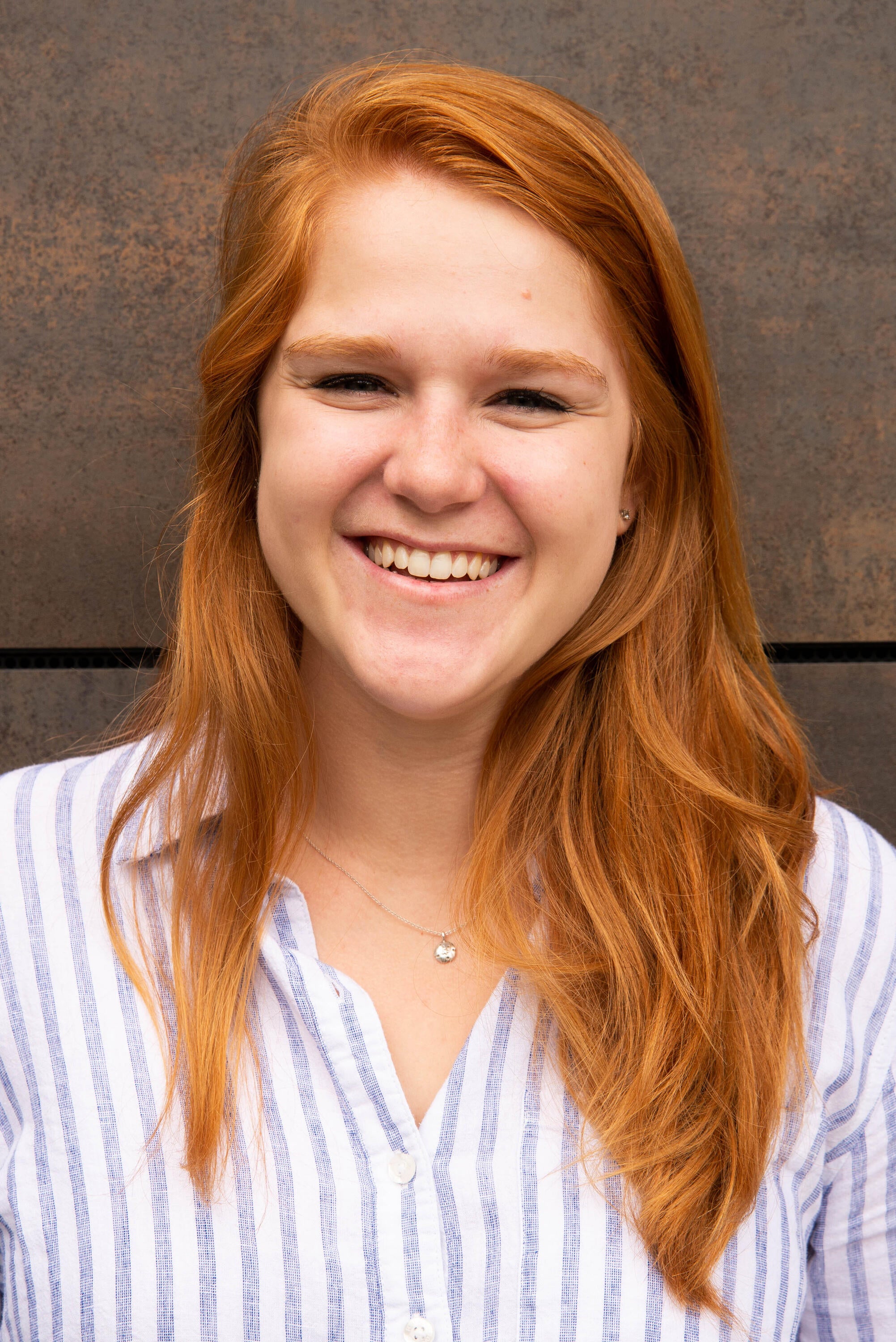In the spring of 2016, Kirsten Mosey, the Kindred Credit Union Centre for Peace Advancement’s Communications Coordinator, was standing in a refugee camp on the small Greek island of Lesvos. Kirsten was volunteering in the now infamous Camp Moria, a detention centre turned refugee camp that, at the time, housed over 6000 refugees from all across the Middle East and Africa. While Kirsten’s friends back home in Canada were finishing their exams, she was delivering tents, handing out tea, and listening to stories of displacement.
Kirsten returned to Canada, committed to making a difference in the lives of refugees. Nearly a year later, she began her degree in Political Science at the University of Waterloo. Dedicated to learning more about how she could create positive change for millions of refugees at both the personal and policy levels, Kirsten also began to learn more about social innovation at UWaterloo.
Through her first co-op position, Kirsten learned of the Centre for Peace Advancement. Trekking over to the far corner of campus, Kirsten met with the Centre for Peace Advancement team in hopes to make the Centre’s entrepreneurial take on peacebuilding known to the wider community. Just a few months later, Kirsten joined the Centre as Communications Assistant. Working alongside start-ups such as Lunaria and Demine Robotics, and sharing office space with well-established NGOs like Project Ploughshares and the Tamarack Institute, Kirsten’s energy for changemaking was renewed.
Over the course of her first co-op term with the Centre, Kirsten became familiar with the innerworkings of social innovation. The misconception of peacebuilding as a narrow avenue for change was dismantled as she learned of folks using coding, geomatics, and conflict resolution tools to make significant impacts on communities across the world. Not only was she witnessing peacebuilding in action, but Kirsten was also encouraged to pursue her passions and to share them with the community.
As Kirsten detailed her experiences working with refugees, she was constantly challenged to use tools to open up her understanding and pursue meaningful change. Through concepts such as systems mapping, and Thinking and Working Politically, Kirsten gained an understanding of problem scopes and how to identify root causes to global challenges. A guest lecture by Michael Molloy as part of Marlene Epp’s Canadian Immigration History course encouraged her to push back on traditional ideas of refugee resettlement and reimagine Canada’s refugee policies. Leading tours for the Drone Dialogues exhibit, which saw near life-size re-creations of killer drones on the wall mere feet from her desk, provided Kirsten with an opportunity to reflect on the impact of technology on humanity. Witnessing the comings and goings of peace practitioners from Project Ploughshares reminded Kirsten that there was a whole world of peacebuilding just waiting to be explored.

In the spring of 2020, Kirsten received notice that she had been chosen for the United Nations Office for Disarmament Affairs (UNODA) Youth Champions for Disarmament Training Programme. Following the United Nations resolution on Youth, Peace and Security, the program, which received over 6,500 applications, is designed to bring 10 passionate young people from around the world together to contribute to global disarmament efforts. Through online training from the UNODA, webinars and networking opportunities with NGOs and UN officials, and a study tour to Geneva, Vienna, Nagasaki, and Hiroshima, the Youth Champions will be equipped to build momentum for disarmament-related issues in their own communities.
Kirsten, the only North American youth represented, hopes to encourage a stronger discussion on disarmament and refugees, both locally and globally. Inspired by ongoing conversations about responsible innovation and technology, as well Waterloo Region’s reputation as a hub for both innovation and refugee resettlement, Kirsten is eager to represent Canada and the University of Waterloo as she advocates for disarmament policy that saves lives.